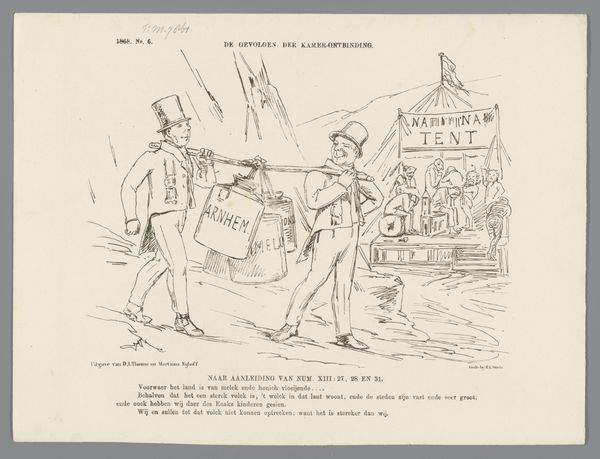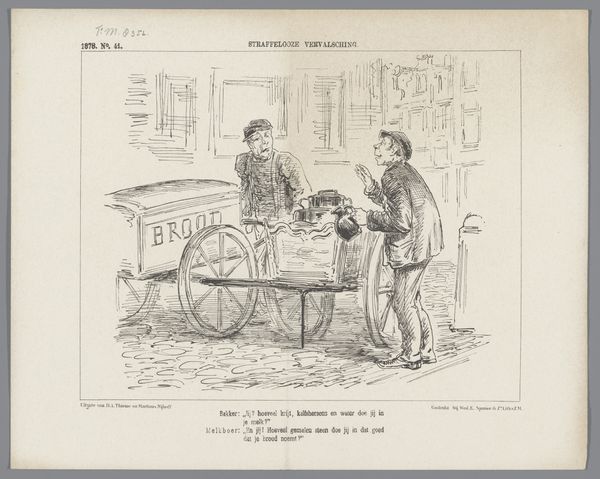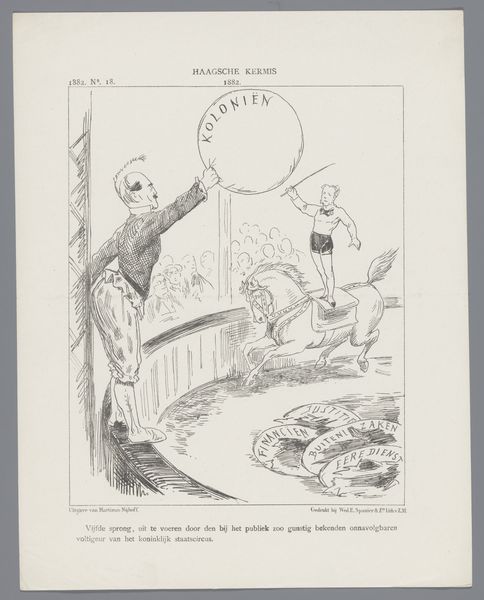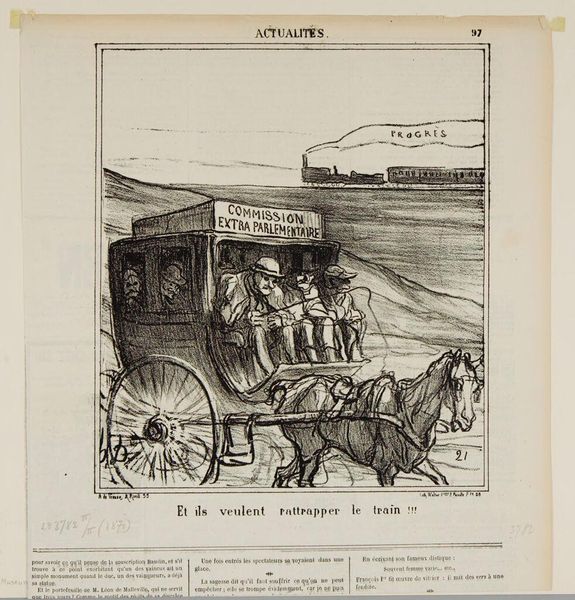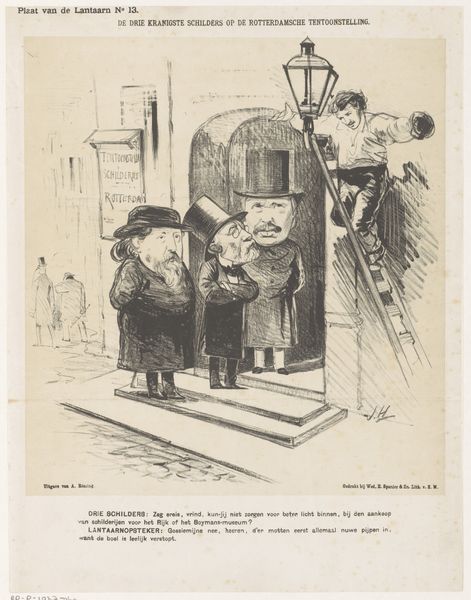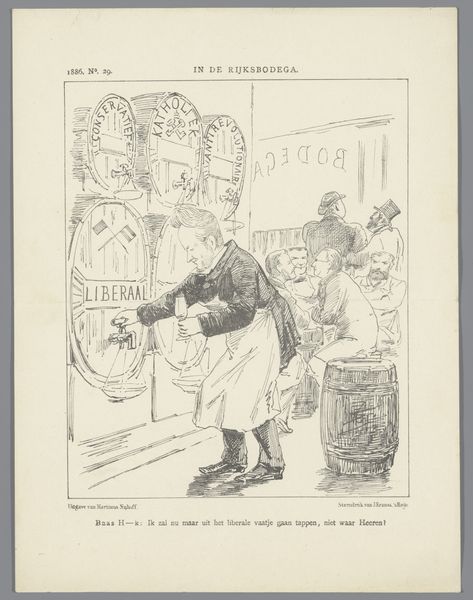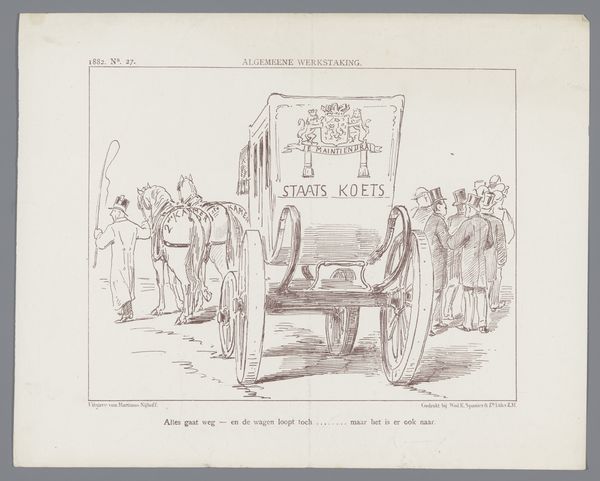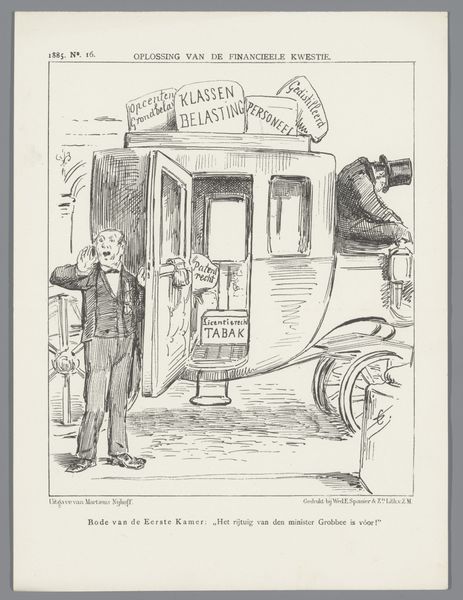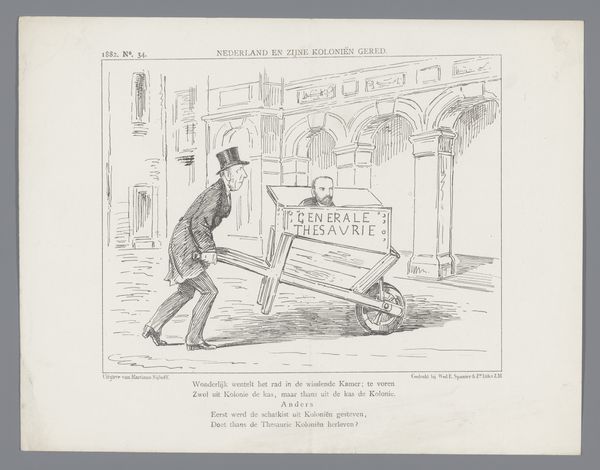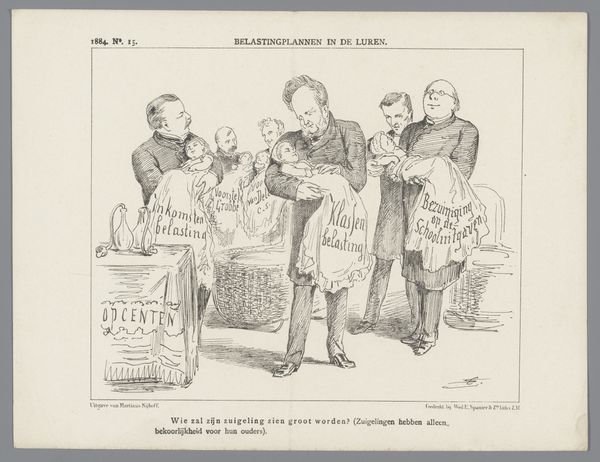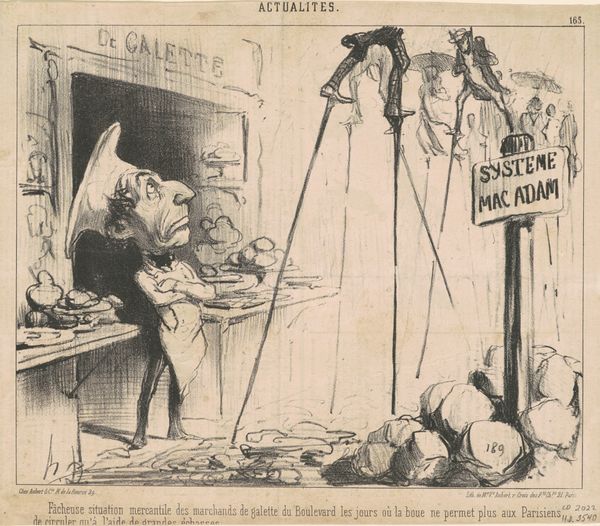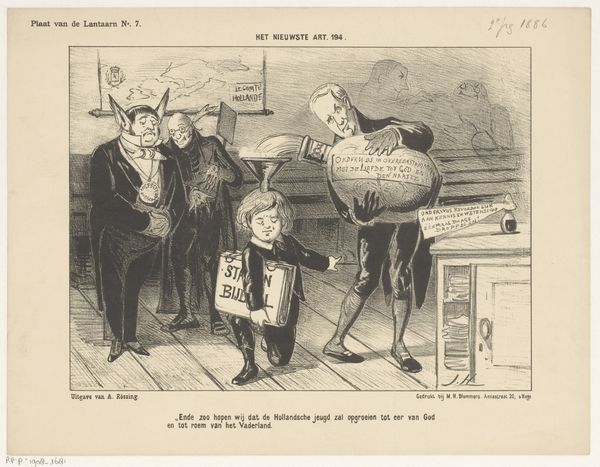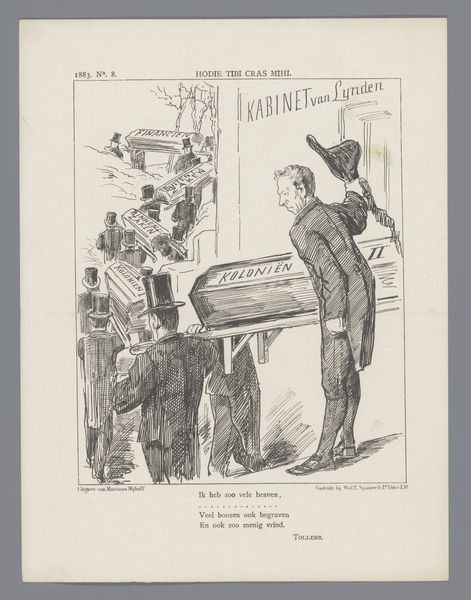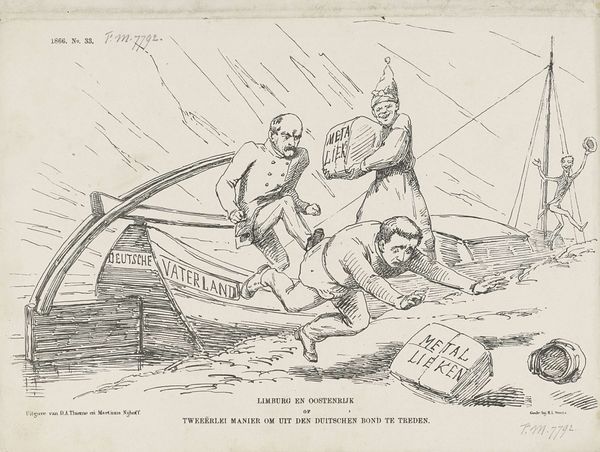
graphic-art, print, engraving
#
graphic-art
# print
#
caricature
#
engraving
Dimensions: height 215 mm, width 275 mm
Copyright: Rijks Museum: Open Domain
Editor: This is "Spotprent op de plannen voor inkomstenbelasting, 1883" (Cartoon on Income Tax Plans, 1883), by Johan Michaël Schmidt Crans. It's a print, likely an engraving, and it feels very political and critical. What do you see in it? Curator: This image, born from the hands of Johan Michaël Schmidt Crans, becomes fascinating when we consider its materiality. The engraving process itself, the labour involved in meticulously etching the design onto a metal plate, then the mechanical reproduction of the image… It all speaks to the artist engaging with contemporary means of disseminating political commentary. The intended wide distribution enabled by printmaking highlights the social context: these Liberal proposals for income tax are clearly contentious. Editor: So, it's the mass production aspect of printmaking that really emphasizes the message? Curator: Precisely! Think about the engraver’s labor compared to a painter. What is communicated, and to whom, changes radically because of the means of production. It bypasses traditional high art channels, getting directly into the hands of consumers, and that is its radical political power. Note how "Inkomst Belasting" is emblazoned upon the vehicle: a tram-like vehicle about to smash into boxes or items listing the people. Tea tax. A blunt visualization of material reality: that those people have tangible items to tax, in contrast to the political vehicle that contains literally, liberals who make decisions on their livelihood and ability to have these possessions and resources. The consumption and labor it takes for their tangible existence is being put in harm's way from their government, from decisions that seemingly put these everyday, commonplace possessions and ability to consume and earn for consumption at risk! It's more than a simple jab: Schmidt Crans is saying that liberal proposals risk destroying those most impacted on the basis of materials or what creates materials or is used in everyday life in these laborers livelihood and life for which, liberals or a type of political affiliation in positions of leadership is detached. Editor: That's a much more layered reading than I initially had! Considering it through the lens of production and consumption makes it feel much more pointed and critical. Thanks for your help in making visible the underpinnings to this complex artwork. Curator: My pleasure; considering process, making, and consumption reveals not just content, but the inherent tensions between art, labor and daily reality.
Comments
No comments
Be the first to comment and join the conversation on the ultimate creative platform.
